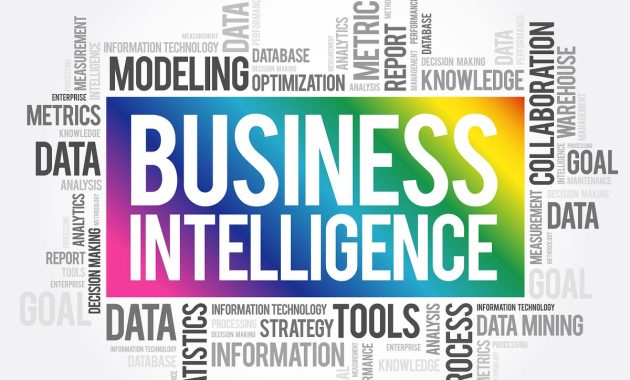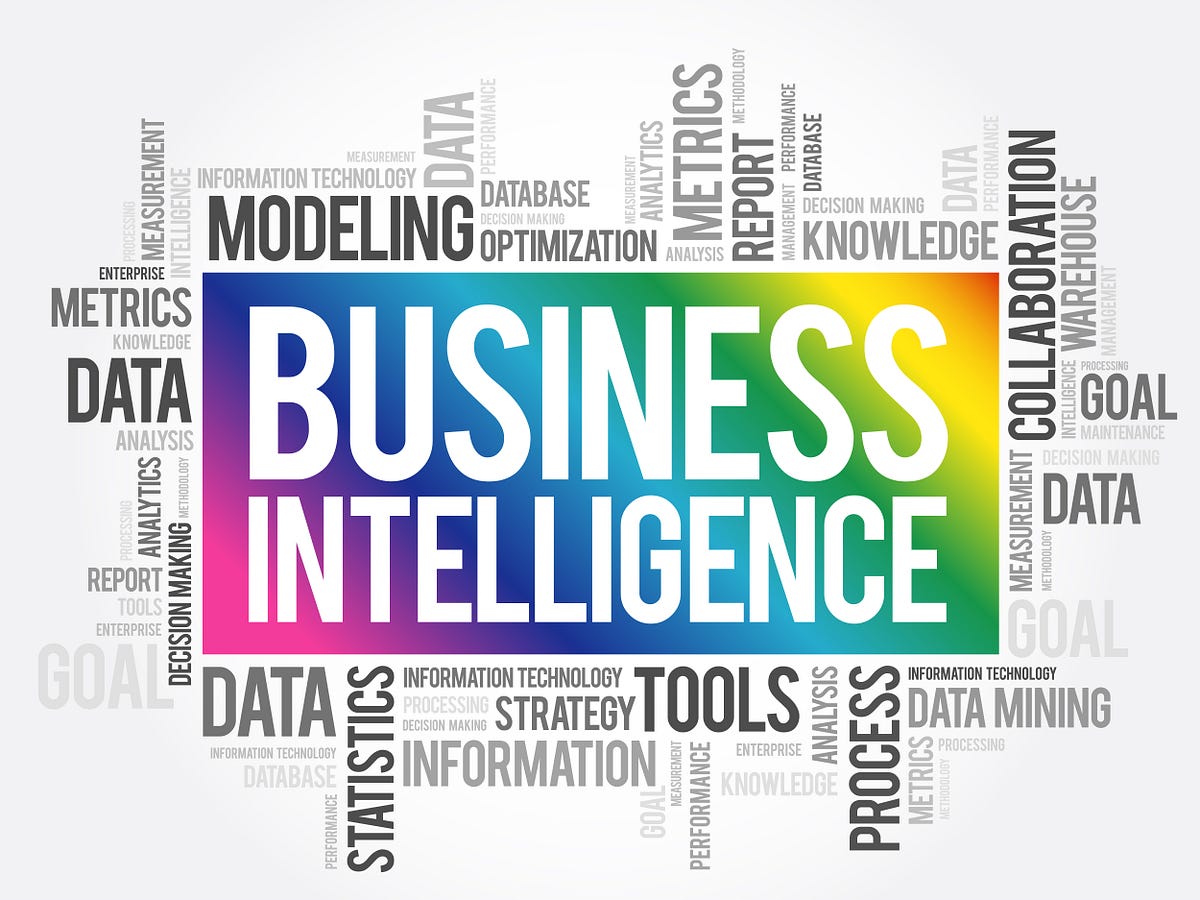
Quick Guide to Business Intelligence Software You Can Trust: Making Data-Driven Decisions
In today’s fast-paced business environment, data is king. Companies are constantly seeking ways to harness the power of their data to gain a competitive edge. This is where Business Intelligence (BI) software comes into play. But with so many options available, how do you choose the right BI software? This quick guide will help you navigate the landscape and select Business Intelligence software you can trust.
The core function of Business Intelligence software is to transform raw data into actionable insights. It does this through a variety of processes, including data collection, analysis, and visualization. The insights generated can then be used to inform decision-making, optimize processes, and drive business growth. Choosing the right BI tool is crucial to ensure the accuracy and relevance of these insights. The wrong choice can lead to inaccurate analysis and wasted resources.
Understanding the Fundamentals of Business Intelligence
Before diving into specific software, it is important to understand the core concepts of Business Intelligence. BI is not just about creating reports; it’s a comprehensive approach to data analysis. It involves collecting, storing, analyzing, and interpreting data to gain a better understanding of a business’s performance.
Key components of a BI system include:
- Data Warehousing: This involves storing large volumes of data from various sources in a centralized repository.
- Data Mining: This process uses statistical techniques to uncover patterns and trends in the data.
- Reporting and Analysis: This involves creating reports and dashboards to visualize data and track key performance indicators (KPIs).
- Data Visualization: This helps present data in an easy-to-understand format, using charts, graphs, and other visual aids.
Effective Business Intelligence software integrates these components to provide a holistic view of the business. This allows decision-makers to make informed choices based on real-time data.
Key Features to Look for in Business Intelligence Software
When evaluating Business Intelligence software, several key features are essential. These features ensure the software is effective, user-friendly, and can meet your specific business needs. Consider these features when selecting a solution:
Data Integration Capabilities
The ability to integrate data from various sources is critical. Your chosen software should be able to connect to databases, spreadsheets, cloud services, and other relevant data sources. Look for support for a wide range of data connectors.
Data Visualization Tools
Effective data visualization is key to understanding complex data. The software should offer a variety of charts, graphs, and interactive dashboards. These tools help you present data in a clear and concise manner.
Reporting and Dashboarding
The software should allow you to create custom reports and dashboards. These reports should be easy to generate and customizable. They should also provide real-time data and insights.
Ease of Use
The software should be user-friendly, even for those without technical expertise. A simple interface and intuitive features are vital for widespread adoption within your organization. Training and support should also be readily available.
Scalability
As your business grows, your data volume will also increase. The software should be able to handle larger datasets and accommodate more users. It needs to scale with your business needs.
Security Features
Data security is paramount. The software should have robust security features to protect sensitive data. It should provide access controls, encryption, and compliance with relevant regulations.
Top Business Intelligence Software Options
Several Business Intelligence software solutions are available, each with its strengths. Choosing the right one depends on your specific needs and budget. Here are some popular options:
Tableau
Tableau is a leading BI platform known for its powerful data visualization capabilities. It offers an intuitive interface and a wide range of features. It is popular among businesses of all sizes.
Microsoft Power BI
Microsoft Power BI is a comprehensive BI tool that integrates seamlessly with other Microsoft products. It offers a user-friendly interface, strong data analysis features, and competitive pricing. It is a good option for businesses already invested in the Microsoft ecosystem. This is a fantastic Business Intelligence software.
Qlik Sense
Qlik Sense is another popular BI platform with advanced data discovery capabilities. It uses an associative data model that allows users to explore data in new ways. It’s a good option for businesses looking for advanced data analysis.
Looker (Google Cloud)
Looker, now part of Google Cloud, offers a data modeling layer. It provides a centralized data definition. It is known for its collaborative features and robust data governance capabilities.
Sisense
Sisense is a BI platform designed for complex data analysis and embedded analytics. It is capable of handling large datasets and offers a user-friendly interface. This is a great Business Intelligence software.
How to Choose the Right Business Intelligence Software
Selecting the right Business Intelligence software is a strategic decision. It requires careful consideration of your business needs, budget, and technical capabilities. Here’s a step-by-step guide to help you choose the right software:
Assess Your Business Needs
Identify your specific data analysis needs. Determine what questions you want to answer with your data. Consider your current data sources and the types of reports and dashboards you need.
Define Your Budget
Set a realistic budget for software, implementation, and ongoing maintenance. Consider both the initial cost and the total cost of ownership. This includes training and support.
Evaluate Software Options
Research different software options and compare their features, pricing, and reviews. Consider free trials or demos to test the software. You can evaluate the features of the Business Intelligence software.
Consider Implementation and Training
Evaluate the ease of implementation and the availability of training and support. Choose software that aligns with your team’s technical skills. Consider the learning curve for users.
Prioritize Data Security
Ensure the software offers robust security features to protect your data. Review the vendor’s security policies and compliance certifications. Data security is very important when working with Business Intelligence software.
Seek Expert Advice
Consult with BI experts or consultants. They can provide valuable insights and help you select the right software. They can also assist with implementation and training. It is essential to find the best Business Intelligence software.
The Benefits of Using Business Intelligence Software
Implementing Business Intelligence software offers numerous benefits. These benefits can significantly improve your business performance. These advantages include:
- Improved Decision-Making: BI provides data-driven insights to make better decisions.
- Increased Efficiency: BI automates reporting and analysis, saving time and resources.
- Enhanced Customer Experience: BI helps understand customer behavior and preferences.
- Competitive Advantage: BI enables businesses to identify opportunities and trends.
- Cost Reduction: BI helps optimize processes and reduce operational costs.
By leveraging these benefits, businesses can improve profitability and achieve sustainable growth.
Ensuring Data Quality and Trust
Data quality is crucial for the success of any Business Intelligence software implementation. Poor data quality can lead to inaccurate insights and flawed decisions. To ensure data quality, consider these factors:
- Data Governance: Establish clear data governance policies and procedures.
- Data Cleansing: Implement data cleansing processes to remove errors and inconsistencies.
- Data Validation: Validate data at the point of entry to ensure accuracy.
- Data Auditing: Regularly audit data to identify and correct any issues.
By focusing on data quality, you can build trust in your BI system and make informed decisions.
Conclusion: Embracing Data-Driven Decisions
Choosing the right Business Intelligence software you can trust is a critical step. It can help you unlock the power of your data and drive business success. By understanding the fundamentals of BI, evaluating key features, and following a strategic selection process, you can choose the best software for your needs. Prioritize data quality, security, and ease of use. The right BI tools will empower your team to make data-driven decisions. This will help your business thrive in today’s competitive landscape. Embrace the power of data and take your business to the next level. This is the best Business Intelligence software that you can find.
[See also: Related Article Titles]

